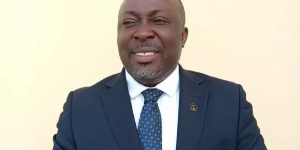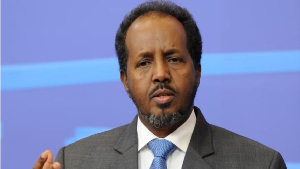Finance Minister Seth Terkper has highlighted in the 2015 budget statement and economic policy government’s determination to achieve faster fiscal consolidation, in line with the International Monetary Fund’s recommendations.
A formal agreement between Ghana and the IMF is yet to be announced, but a bundle of policy measures including the introduction of the 17.5 percent Special Petroleum Tax on petroleum has shown government’s intention of reining in its budget deficit at a much faster pace.
Staff of the Fund, after concluding regular consultations with the government in February, advised that the scale of Ghana’s budget and current account deficits warrant more short-term austerity, and went ahead to recommend a mixture of additional tax hikes and expenditure curbs to cut the twin deficits more quickly.
In terms of deficit reduction, government can be seen reining in its budget deficit at a much faster pace in line with similar recommendations made by the Washington-based lender in its May 2014 country report.
Initially, government as part of implementing its home-made stabilisation programme was projecting that it would lower its budget deficit to 5.3 percent of GDP in 2017, while the Fund had recommended the deficit be reduced to 2.5 percent of GDP in that same period.
Figures presented to Parliament now correspond with the rapid acceleration in the reduction, with government now targetting a much narrower budget deficit of 3.5% of GDP as against its initial 5.3% projection.
According to the Minister: “Fiscal policy will be driven mainly by new tax policy measures, revenue administration reforms, improved public financial management, expenditure rationalisation, and the implementation of new debt management strategies”.
To ensure that it maintains its grip on the ballooning wage expenditure, government has warned workers that wage negotiations will be done within the budgetary constraints to ensure sustainability of the Single Spine.
Although government has not been able to complete wage adjustments with workers, its preference for a faster deficit reduction coupled with budgetary constraints leaves little room for workers to see a significant increase in salaries.
Government is hoping the introduction of the 17.5 percent petroleum tax, including the implementation of the VAT on fee-based financial services among other new tax revenue streams, will boost significantly its tax revenues -- which is a 31 percent increase over that projected for 2014.
Government’s total tax revenue for next year is estimated at GH¢25.4billion, representing 18.8 percent of GDP.
Just as the IMF had proposed in its May report -- i.e. a thorough review of tax regime for free zones companies to reduce tax expenditures -- Mr. Terkper revealed that the Free Zones Act will be reviewed and the corporate tax rate of companies after the enjoyment of the ten years tax holiday will be increased from 8 percent to 15 percent.
Another move to rein in tax expenditure, which constitute a significant proportion of total tax revenue (13.1 percent) and GDP (2.1 percent), will see the abolishment of using the VAT Relief Purchase Order (VRPO) in granting of relief.
According to the Finance Minister, the fund system will be beefed-up to pay refunds when the request are duly vetted and certified.
Addressing Parliament on Wednesday, he added that tax exemptions granted in loan agreements will also be reviewed to reduce the scope of exemptions granted, and the use of special permits will be drastically reduced.
He added that: “Upfront exemptions will be replaced by a Tax Credit System for entities benefitting from exemptions. Under Tax Credit System, exempted entities will pay all import duties and taxes in full and apply for a Tax Credit Note, which will be used to offset future tax liabilities”.
Mr. Terkper told parliament that as part of government’s initiative to consolidate sustainability and efficiency in debt management, credit-worthy MMDAs will from next year have the support of government to pursue municipal bonds programmes to access the domestic capital market for financing commercially viable projects.
Business News of Friday, 21 November 2014
Source: BFT
Terkper steps up tightening













